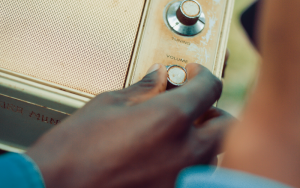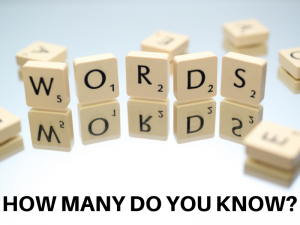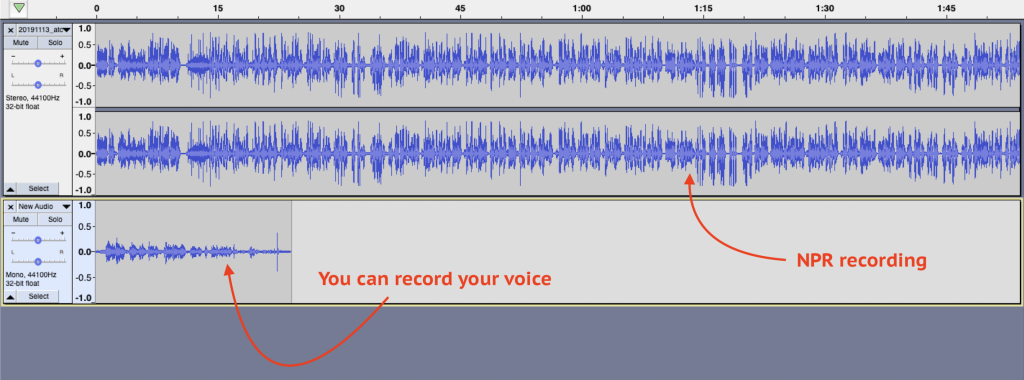GONE WITH THE WIND
(Унесённые ветром)
Margaret Mitchell (1900-1949)
(Маргарет Митчел (1900-1949))
PART ONE
(ЧАСТЬ ПЕРВАЯ)
CHAPTER I
(Глава I)
Scarlett O’Hara (Скарлетт О’Хара) was not beautiful (не была красивой; to be – быть), but men (однако мужчины; man – мужчина) seldom realized it (редко осознавали это) when caught by her charm (будучи очарованными ею: «когда были пойманы её шармом/обаянием») as the Tarleton twins were (как например близнецы Тарлетон: «как были близнецы Тарлетон»). In her face were too sharply blended (в её лице были причудливо смешаны; sharply – резко) the delicate features of her mother (деликатные черты её матери), a Coast aristocrat of French descent (местной аристократки французского происхождения; coast – берег), and the heavy ones of her florid Irish father (и грубые черты её напыщенного отца – ирландца; heavy – тяжелый; florid – красный; цветистый). But it was an arresting face (однако это было захватывающее лицо), pointed of chin (/с/ заостренным подбородком), square of jaw (/и/ пухлыми щеками; square – квадратный; площадь).
Scarlett O’Hara was not beautiful, but men seldom realized it when caught by her charm as the Tarleton twins were. In her face were too sharply blended the delicate features of her mother, a Coast aristocrat of French descent, and the heavy ones of her florid Irish father. But it was an arresting face, pointed of chin, square of jaw.
Her eyes were pale green without a touch of hazel (её глаза были бледно-зелёные без намека на карий цвет;touch – касание), starred with bristly black lashes (в оправе выраженных темных ресниц; star – усеивать; украшать звёздами; bristly – колючий; жесткий) and slightly tilted at the ends (и /с/ немного наклонными уголками; end – конец). Above them (с верху них), her thick black brows slanted upward (ее густые черные брови поднимались вверх; slant – наклоняться), cutting a startling oblique line in her magnolia-white skin (/и/ образовывали поразительную косую линию на ее белой, как лепесток магнолии, коже; cut – резать) – that skin so prized by Southern women (той коже, которую ценят женщины с Юга; woman – женщина) and so carefully guarded with bonnets, veils and mittens against hot Georgia suns (и так бережно прикрывают дамскими шляпами, вуалями и митенками от жаркого солнца Джорджии).
Her eyes were pale green without a touch of hazel, starred with bristly black lashes and slightly tilted at the ends. Above them, her thick black brows slanted upward, cutting a startling oblique line in her magnolia-white skin – that skin so prized by Southern women and so carefully guarded with bonnets, veils and mittens against hot Georgia suns.
Seated with Stuart and Brent Tarleton in the cool shade of the porch of Tara (сидя с Стюартом и Брентом Тарлетон в прохладном тенечке /на/ крыльце Тары), her father’s plantation that bright April afternoon of 1861(плантации ее отца, того благоприятного апрельского вечера в 1861 /году/; bright – яркий), she made a pretty picture (она была словно из прекрасной картины: «она делала красивую картину»). Her new green flowered-muslin dress (её новое зелёное платье в цветочек, сделанное из муслина) spread its twelve yards of billowing material over her hoops (расстилало свои двенадцать ярдов воздушного материала на ее обручи; spread –распространять; billowing – тот, который вздымается) and exactly matched the flat-heeled green morocco slippers (и точно подходило к зеленым сафьяновым туфлям с плоской подошвой) her father had recently brought her from Atlanta (которые её отец недавно привез ей с Атланты).
Seated with Stuart and Brent Tarleton in the cool shade of the porch of Tara, her father’s plantation, that bright April afternoon of 1861, she made a pretty picture. Her new green flowered-muslin dress spread its twelve yards of billowing material over her hoops and exactly matched the flat-heeled green morocco slippers her father had recently brought her from Atlanta.
The dress set off to perfection the seventeen-inch waist (платье идеально прилегает к семнадцати дюймовой талии; set off – отправлять; выделять), the smallest in three counties (самой тонкой в трех графствах), and the tightly fitting basque showed breasts well matured for her sixteen years (и плотно сидящая баска выделяла бюст, /который/ отлично сформировался для шестнадцати лет; show – показывать; mature – зрелый, развитый). But for all the modesty of her spreading skirts (но несмотря на приличность ее расправленной юбки), the demureness of hair netted smoothly into a chignon (скромность ее волос, собранные гладко в пучок; net – ловить сетями; плести) and the quietness of small white hands folded in her lap (и спокойствие ее маленьких ручек, сложенных на коленях), her true self was poorly concealed (её истинная сущность была плохо скрыта).
The dress set off to perfection the seventeen-inch waist, the smallest in three counties, and the tightly fitting basque showed breasts well matured for her sixteen years. But for all the modesty of her spreading skirts, the demureness of hair netted smoothly into a chignon and the quietness of small white hands folded in her lap, her true self was poorly concealed.
The green eyes in the carefully sweet face were turbulent, willful, lusty with life, (зелёные глаза её заботливого милого личика были беспокойными, своенравными, полные жизни; carefully – аккуратно; lusty – крепкий) distinctly at variance with her decorous demeanor (в явной дисгармонии с её приличным поведением; at variance – в противоречии с чем-то). Her manners had been imposed upon her by her mother’s gentle admonitions (её манеры ей навязали благородные наставления ее матери; gentle – нежный) and the sterner discipline of her mammy (и суровая дисциплина её матушки); her eyes were her own (глаза у нее были от природы: «глаза у нее были свои»).
The green eyes in the carefully sweet face were turbulent, willful, lusty with life, distinctly at variance with her decorous demeanor. Her manners had been imposed upon her by her mother’s gentle admonitions and the sterner discipline of her mammy; her eyes were her own.
On either side of her, the twins lounged easily in their chairs (по обе стороны от нее, близнецы небрежно развалились в своих креслах; easily – легко), squinting at the sunlight through tall mint-garnished glasses as they laughed and talked (искоса глядели на солнечный свет сквозь высокие, украшенные лепным орнаментом стекла, смеясь и говоря /друг с другом/), their long legs, booted to the knee and thick with saddle muscles, crossed negligently (их долгие ноги, обутые по колена и толстые с мускулами, /как у/ наездников, были небрежно скрещены).
On either side of her, the twins lounged easily in their chairs, squinting at the sunlight through tall mint-garnished glasses as they laughed and talked, their long legs, booted to the knee and thick with saddle muscles, crossed negligently.
Nineteen years old, six feet two inches tall, long of bone and hard of muscle, with sunburned faces and deep auburn hair (девятнадцатилетние, шесть футов два дюйма в высоту, высокие и мускулистые, с загорелыми лицами и темно-рыжими волосами; bone – кость; deep – глубокий), their eyes merry and arrogant, their bodies clothed in identical blue coats and mustard-colored breeches (их глаза /были/ веселыми и надменными, они были одеты в одинаковые синие куртки и горчичного цвета бриджи; body – тело), they were as much alike as two bolls of cotton (они были очень похожи /друг на друга/, как две коробочки хлопка). Outside, the late afternoon sun slanted down in the yard (снаружи, позднее вечернее солнце /уходило/ на закат во дворе), throwing into gleaming brightness the dogwood trees that were solid masses of white blossoms against the background of new green (бросая мерцающий свет на кизиловые деревья, что были /словно/ сплошная масса белых цветов на фоне молодой зелени).
Nineteen years old, six feet two inches tall, long of bone and hard of muscle, with sunburned faces and deep auburn hair, their eyes merry and arrogant, their bodies clothed in identical blue coats and mustard-colored breeches, they were as much alike as two bolls of cotton. Outside, the late afternoon sun slanted down in the yard, throwing into gleaming brightness the dogwood trees that were solid masses of white blossoms against the background of new green.
The twins’ horses were hitched in the driveway, big animals, red as their masters’ hair (лошади близнецов были привязаны на дороге, большие животные, рыжие, прям как волосы хозяев; red – красный); and around the horses’ legs quarreled the pack of lean, nervous possum hounds that accompanied Stuart and Brent wherever they went (а вокруг ног лошадей переругивались свора худощавых, нервных гончих, которые сопровождали Стюарта и Брента куда бы они не шли). A little aloof, as became an aristocrat, lay a black-spotted carriage dog (немного в сторонке, как подобает аристократам, лежит пятнистый долматский дог; become – случаться), muzzle on paws, patiently waiting for the boys to go home to supper, (/опустив/ морду на лапы, терпеливо ждал когда молодые люди пойдут домой ужинать; boy – мальчик).
The twins’ horses were hitched in the driveway, big animals, red as their masters’ hair; and around the horses’ legs quarreled the pack of lean, nervous possum hounds that accompanied Stuart and Brent wherever they went. A little aloof, as became an aristocrat, lay a black-spotted carriage dog, muzzle on paws, patiently waiting for the boys to go home to supper.
Between the hounds and the horses and the twins there was a kinship deeper than that of their constant companionship (между гончими и лошадями и близнецами была более крепкая близость, чем /просто/ постоянное товарищество). They were all healthy, thoughtless young animals, sleek, graceful, high-spirited (они все были здоровые, беспечные молодые животные, ухоженные, изящные, отважные; sleek – гладкий), the boys as mettlesome as the horses they rode, mettlesome and dangerous but, withal, sweet-tempered to those who knew how to handle them (/а/ молодые люди такие же пылкие, как и лошади на которых они ездили, пылкие и опасные, но, вдобавок, с приятным характером для тех, кто знал как с ними обращаться).
Between the hounds and the horses and the twins there was a kinship deeper than that of their constant companionship. They were all healthy, thoughtless young animals, sleek, graceful, high-spirited, the boys as mettlesome as the horses they rode, mettlesome and dangerous but, withal, sweet-tempered to those who knew how to handle them.










 Irish
Irish




